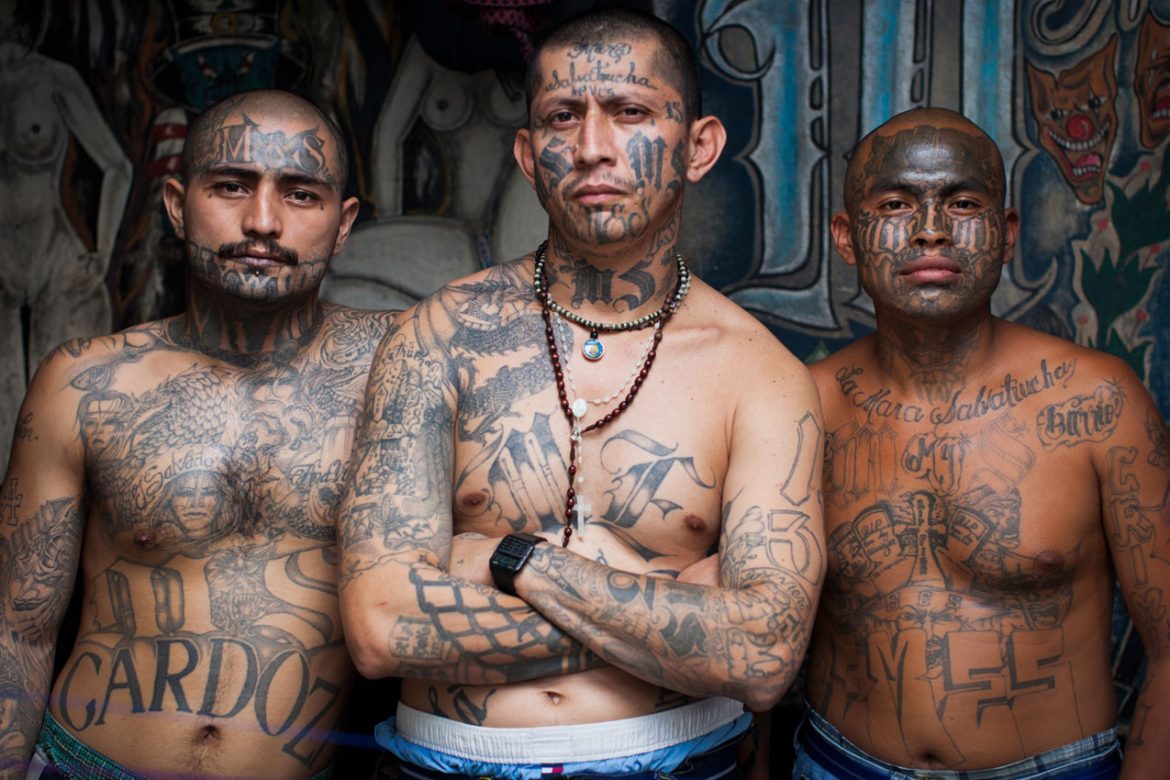This material belongs to: Pacific Standard.
Behind the devastating crime rates in the region lies an insidious network of political collaboration with violent gangs like MS-13.
Is Mara Salvatrucha, the Salvadoran youth gang menacing residents in some United States cities, really America’s public enemy No. 1?
After months of boasting that it would “destroy” MS-13, the Trump administration has now declared the group a top crime-fighting priority. U.S. Attorney General Jeff Sessions has instructed the Department of Justice to go all out combating it domestically, and Cabinet officials have encouraged the Central American counterparts to do the same.
In my opinion, the group has become the perfect Donald Trump villain not necessarily because of its heinous and highly visible crimes, but because its Central American roots play well into this administration’s anti-immigration stance.
In Long Island, Trump to highlight violence from MS-13 gang to push Congress on immigration https://t.co/zPst8sdAcJ
— Washington Post (@washingtonpost) 28 июля 2017 г.
In dragging Central America into a renewed war on youth gangs, the U.S. is reinforcing an errant but widely held belief that MS-13 and organized crime are Central America’s most pressing problems. I’ve studied violence and crime in the region for more than 20 years, and while gangs are a serious problem, they’re largely a symptom of a far more critical issue plaguing the region—namely, corruption.
Unraveling The Gang Myth
Mara Salvatrucha and other criminal groups certainly contribute to the record high crime rates in El Salvador, Honduras, and Guatemala. Transnational gangs have also instilled fear in some U.S. communities. In Long Island and Virginia, for example, MS-13 has been behind dozens of gruesome killings.
As part of his anti-immigrant posturing, Trump has zeroed in on the group, asserting on July 28th that, “We will find you, we will arrest you, we will jail you and we will deport you.”
This strategy of suppression—which targets mainly low-level players, many of them teenagers—is unlikely to address the crime problem in Central America. In deporting MS-13 members, the president is simply providing seasoned recruits to Central American gangs, which have grown and thrived largely because the region’s political class protects them.
Strange Bedfellows
The most revealing case of the nexus between corruption and organized crime is El Salvador, home turf of MS-13 and of the world’s highest homicide rates.
In August, prosecutors there showed that El Salvador’s two main political parties had colluded with MS-13 and other gangs, paying them more than $300,000 for help winning the country’s 2014 presidential election. Party officials allegedly utilized MS-13 to mobilize some voters and suppress others. Still, the attorney general’s office has not indicted party leaders.
Impunity has also undermined criminal justice in Honduras. A Honduran drug cartel kingpin recently told U.S. prosecutors that drug money had financed past presidential campaigns there and may have helped President Juan Orlando Hernández into power in 2014. To date, no official probe has been launched to investigate the alleged links between the current president and Honduran criminal organizations.
Amid such visible impunity, Guatemala in some ways stands out. It has had two successive incorruptible attorneys general dedicated to fighting the country’s systemic corruption.
The current attorney general of Guatemala, Thelma Aldana, has tackled the issue head on with the help of the International Commission against Impunity in Guatemala, a United Nations-supported body aimed at helping the criminal justice system take up tough crimes—including high-level corruption. The team has had some success in prosecuting powerful politicians, including former President Otto Perez Molina.
But its efforts are now being hampered by President Jimmy Morales, who has made repeated attempts to expel the commission’s head, Iván Velásquez, from the country.
Many observers believe that these attacks are intended to quell corruption investigations against Morales and his inner circle.
The Real Problem
According to a recent study by Vanderbilt University, a majority of Guatemalans, Hondurans, and Salvadorans believe that most of their politicians are corrupt.
Citizen distrust, in turn, makes it harder to fight crime and uphold the rule of law. In Central America, so many people are ready to bypass the law to tackle violence that vigilantism and extrajudicial violence have themselves become major causes of violence.
As a result, corruption in Central America has shattered most efforts to build the kinds of criminal justice institutions necessary to support a democratic society.
The Trump administration, however, has opted to renew failed law enforcement policies to tackle the problem of transnational gangs in the region. After homicide rates and gangs spun out of control in the mid-2000s, the Obama administration largely abandoned heavy-handed policies in favor of a more comprehensive approach to foreign security aid.
In a September joint meeting of Central American attorneys general with the U.S. Department of Justice, held at Florida International University, American authorities praised a recent coordinated anti-gang effort. Some 3,800 Central American gang members were charged with murders, racketeering, and other serious crimes, in both the U.S. and Central America.


